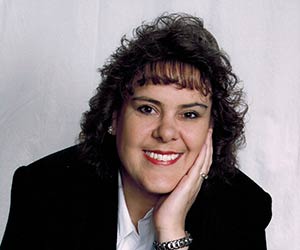Editor’s Note: Defining Hope, a new documentary about people weighing what matters most at the fragile junctures in life—and the nurses who guide them—will be released in select theaters nationwide on November 1, in honor of National Hospice and Palliative Care Month. Walden University is proud to support the new documentary. Through Walden’s support, nurses who attend the screenings in November will receive free continuing nursing education credits.

“Nurses typically tend to choose labor and delivery, emergency room/trauma, and intensive care units,” says Kristina McCall, a PhD in Nursing student, nurse educator, and palliative care nurse. “Few want to be in hospice or oncology, and you almost never hear a nurse say they want to be in palliative care.” That is what McCall hopes to change.
Palliative care is a nursing specialty within end-of-life care that focuses on managing symptoms and pain for those who choose to undergo treatments and interventions. Hospice care, on the other hand, provides patients who opt to forego any treatments and interventions with care that comforts them as they reach the end of their lives.
McCall fell into the palliative care profession more than 20 years ago. She was working at a hospital where she helped wean patients off ventilators, and those who couldn’t acclimate needed to be placed on end-of-life care. “I then found myself working in a pulmonary unit, which is a progressive care unit and a step down from the ICU. And there were a lot of palliative care needs due to COPD and lung cancer, but not a lot of nurses trained to provide the necessary end-of-life care.”
According to McCall, there still aren’t enough nurses trained in this critical area. “The country currently has only about half of the end-of-life-care nurses it needs,” explains McCall, whose Walden dissertation aims to determine if increased education in nursing programs can change attitudes and perceptions so that more nurses choose this specialty. “Through my literature review thus far, I’ve found most nursing schools have less than 5% of their curriculum devoted to palliative end-of-life care, and it mostly addresses grieving and spiritual needs instead of symptom management, pain control, and how to care for the family, as well as coordination with other healthcare team members, which are also aspects of the job.”
McCall feels there is more opportunity for education to influence perceptions related to end-of-life care. That’s why many nurses choose this profession—to prevent suffering or pain. But, says McCall, “some nurses feel like they are causing harm to patients if they perform end-of-life care, when in reality, patients find relief to be comforted by a nurse and palliative care team.”
Dr. Eva Hvingelby, faculty member in the School of Nursing and palliative care nurse, agrees. “As a nurse, the benefit of greater palliative care focus is to try and treat the whole person and not just the symptoms,” she says. “Having that skill set will help provide better care for the patient by knowing how to communicate more effectively with both patients and families about options, as well as help them deal with their own emotions.”
The End-of-Life Nursing Education Consortium palliative care education initiative was created in 2000 to supplement nursing education by offering the specialized knowledge and skills needed to provide quality care to patients. “It’s a great way to get this specialized education, but due to healthcare reform and budget cuts, hospitals are no longer offering or paying for it. Nurses have to enroll and pay on their own,” explains McCall. “Through my research, I hope to reveal the importance of including more specific palliative care education as part of standard nursing curricula, so nursing students are exposed to core principles and are prepared to help dying patients and their families while addressing their unique needs. Though not all nurses will be comfortable delivering end-of-life care, it’s critical to know how to calm fears and worries of patients and their families.”
—Jen Raider


